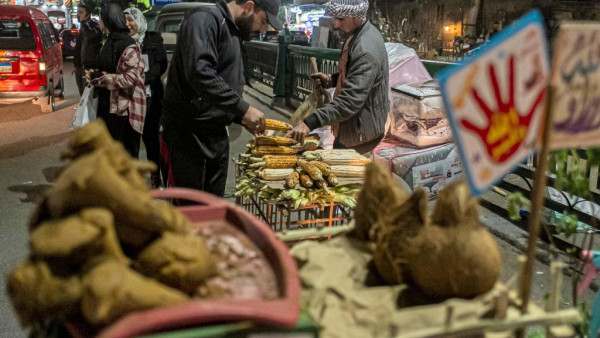Amnesty International called on Egypt on Monday to halt a crackdown on people expressing concerns over the economic crisis the country is suffering.
The clampdown is targeting protesters, striking workers, and people expressing criticism online regarding the handling of the crisis, the global rights group said in a press release.
From January to March this year, Amnesty documented four cases of arbitrary arrest and detention of people in three provinces who complained on social media about price hikes.
Authorities also questioned dozens of workers at a public sector firm involved in a February strike asking to receive the minimum wage, Amnesty said, adding that two people remain arbitrarily detained.
“The Egyptian government is once again resorting to repressive tactics to crush the slightest form of dissent, whether peaceful protest, workers’ strikes or people simply venting their frustrations in a social media post,” said Sara Hashash, deputy regional director for the Middle East and North Africa at Amnesty International.
“Rather than arresting individuals for speaking out about deteriorating living conditions, the Egyptian authorities must take effective steps to fulfil people’s social and economic rights, including those bearing the brunt of the economic crisis,” she added.
Hashash also called on Egyptian authorities to respect the right to freedom of expression and peaceful assembly, as well as immediately release all those arbitrarily detained solely for the exercise of their rights.
Amnesty said in its press release that Egyptian security forces dispersed a protest in March that saw President Abdel Fattah Al-Sisi accused of “starving” the poor.
Demonstrators were arrested, the rights group added.
Economic crisis
The World Bank downgraded Egypt’s economic growth forecast for the current fiscal year to 2.8 per cent, the lowest in 11 years.
The World Bank blamed the recent decline on what it labelled as the country’s “sluggish industrial sector performance,” the high inflation rate, and the impact of war in the region.
In September, Sisi suggested hunger and thirst were sacrifices worth making if they lead to Egypt’s prosperity.
He and the Egyptian government have been the subjects of anger over the country’s economic crisis.
Sisi came to power in a coup a decade ago, overthrowing Egypt’s first and only democratically elected president, Mohamed Morsi.


